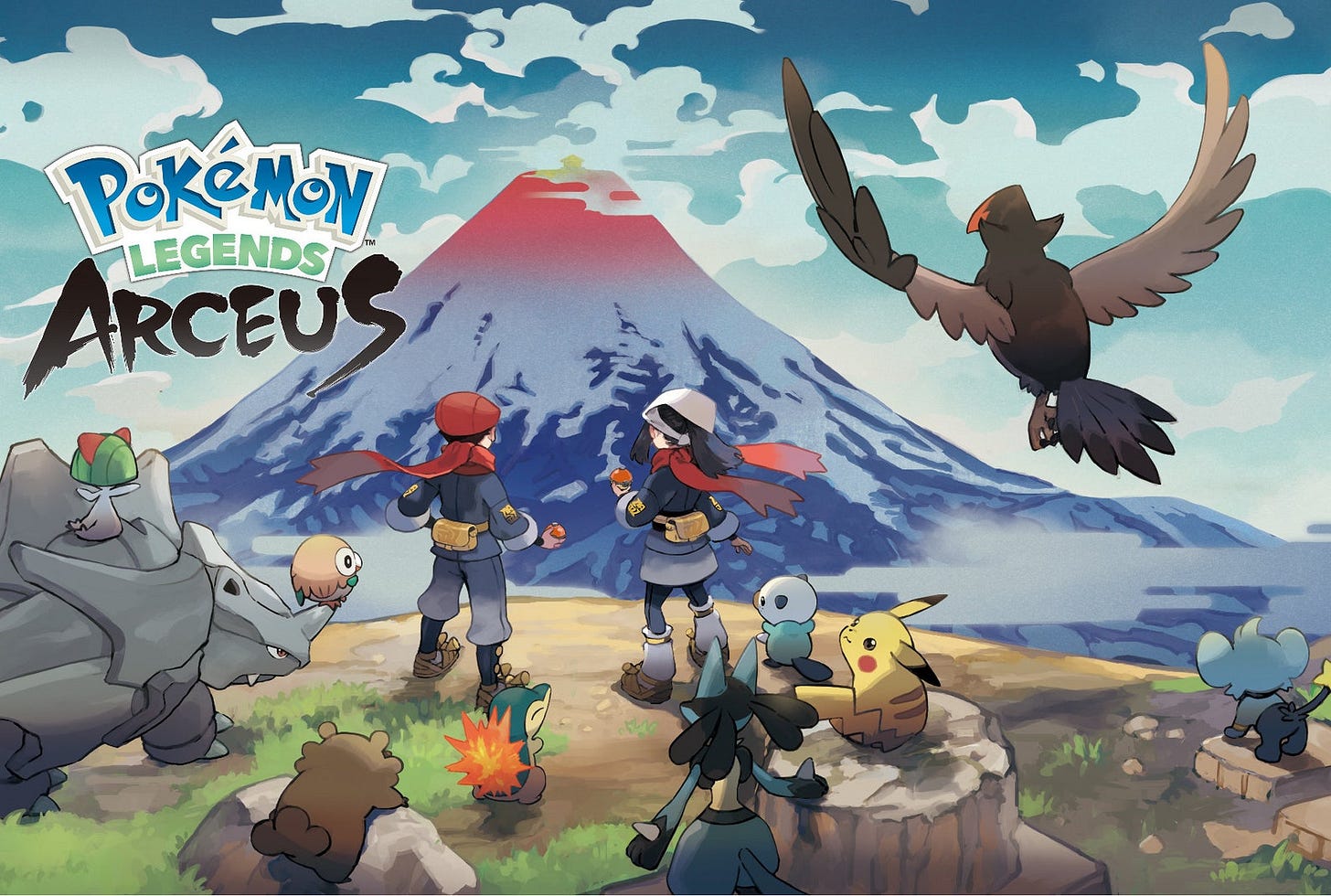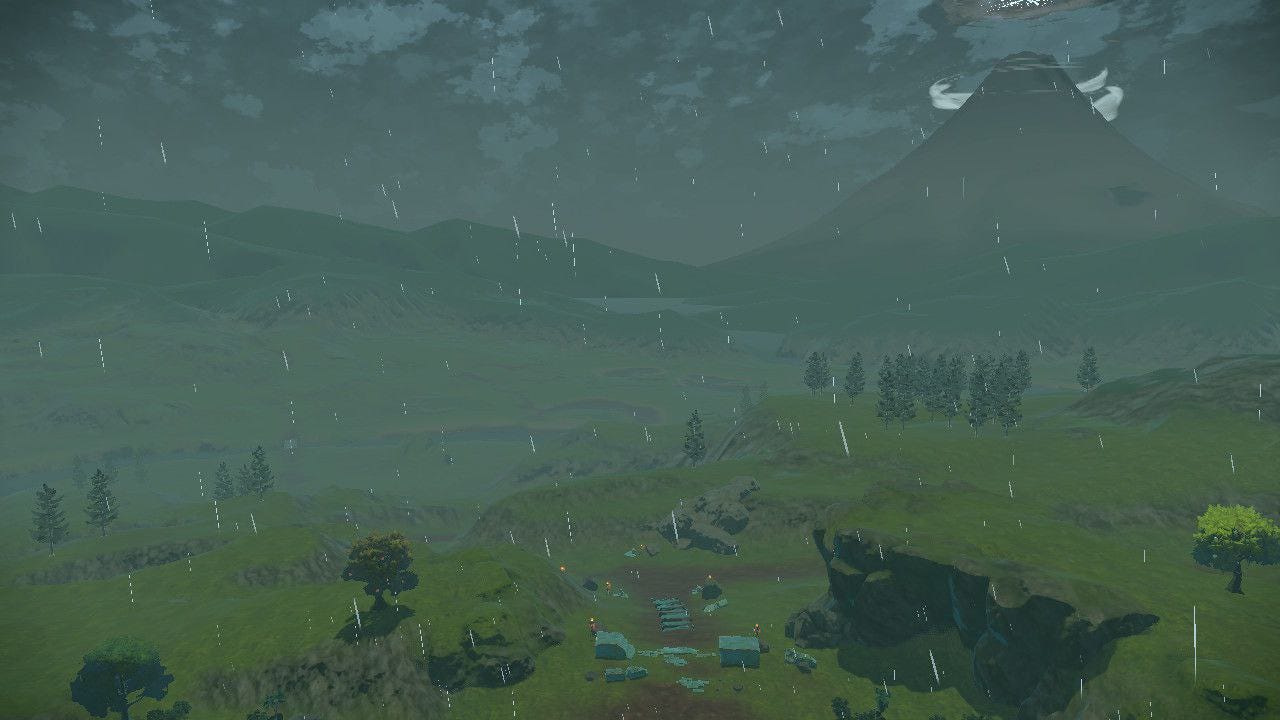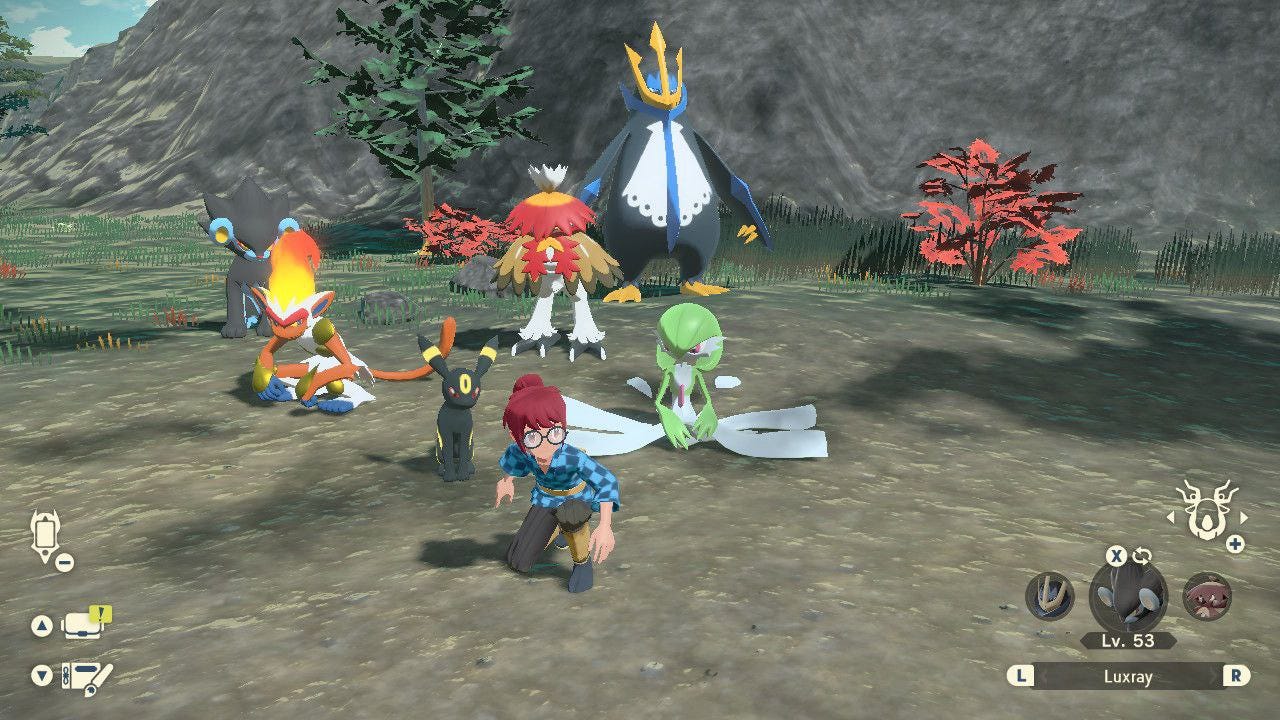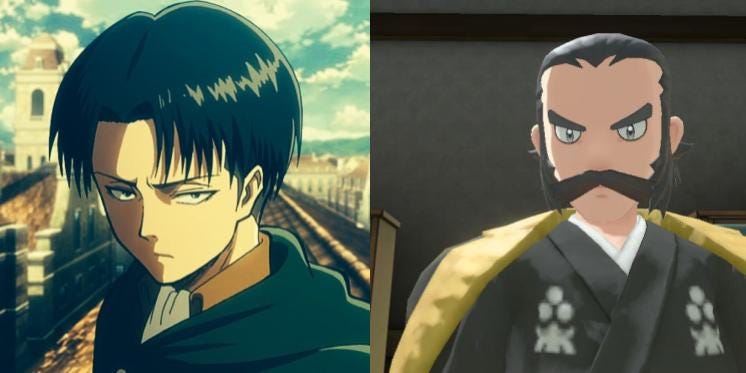Tao Plays: Pokemon Legends: Arceus
Unchained by childhood memories.
“As an adult, I don’t think I could ever bring myself to play a pokemon game.” - Ben, Pixel Vision outtake, episode unknown.
This blunt admission from Ben could be interpreted in a number of ways. Perhaps he means that, as adults, we just don’t have the necessary time to dedicate to the franchise. After ordering a takeaway dinner and putting my imaginary kids to bed, where would an adult such as myself carve out the space? It could be that Ben is pining for days gone by, when he caught little pocket monsters to his heart’s content. I think back to Pokemon Yellow on my beloved Gameboy Color. Are these cherished childhood memories corrupted with each marginally different iteration of the game? Of course, there’s also the outside chance Ben feels he’s grown out of Pokemon. He no longer strives to be the very best, that no one has before, and is comfortably settled in his adult milieu. This interpretation is surely the most Farfetch’d. After all, we do host a video games podcast.
Ben in just a few years:
There’s no doubt the pokemon games are a time sink, and Legends: Arceus is no exception. Although howlongtobeat.com puts the story in at 25 hours, I can reveal that I have spent over 30 hours in the game and haven’t even unlocked the last map. Yes, sorry listeners and readers, predictably am yet to finish. Compared to previous titles, its large open world areas are a wonder to explore. Unlike Sword and Shield, where each ‘wild area’ feels about as free roaming as a small breeds farm, Arceus is reaching for something closer to Breath of the Wild. It’s no big surprise that it doesn’t reach that level, either in the landscape’s verticality or its distant vistas, but in the context of the pokemon series it does an admirable impersonation. In the next edition I fully expect to be able to swap my Cucco for a Starly, floating off each and every mountain. Screenshots of the game were panned for looking bare and unfinished before release, but I love the colourful, anime art style and graphics.
The promise of Sword and Shield’s free roaming pokemon is taken to its logical conclusion in Arceus. Gone are the ninja-like skills of Caterpies and Zubats, which in times gone by would forever catch you unawares in long grass and dark caves. Now you have much more control over how you approach and interact (or not) with the pokemon scurrying above ground. This is clearly the game’s biggest innovation, and I imagine it will split the crowd. For me, the reduction in undesirable battles is welcome. Outside a battle, a wild pokemon might do enough damage to knock you out, but generally you can scarper past them without issue. However, this change also removes the mystery of not knowing which pokemon is going to ‘appear’ at any moment. It’s a tradeoff, and I feel like there’s still more room for compromise: where there could be ‘less’ but still ‘some’ random encounters.
But what about when you’re not just running Mareepishly away from pokemon? Battles are seamlessly integrated into the open-world, but still follow the age old turn-based formula. Manually throwing the pokeball containing one of your selected team of six starts a duel. It’s straightforward enough, but just this small extra freedom feels great. How did the series go so long without the simple joy of manually directing the throw of a pokeball? It’s a much better battle introduction than being pounced upon and going straight to navigating a menu - but menu lovers rejoice! Once you get into the turn-based mode, it’s poke-battles as usual. There’s the new light-touch strategic decision of ‘strong’ and ‘agile’ versions of each move, but nothing that will bamboozle either newcomers or long time fans.
The freedom to throw an occupied pokeball naturally opens up the opportunity to chuck out an empty one. There’s no need to initiate a battle to catch a pokemon. Instead, you crouch through the long grass, sneaking and lobbing all the balls you’ve hand-crafted from conveniently shaped fruits, nuts and rocks. It feels a little like you’re engaged in a strange stakes snow ball fight with everything that moves. It’s a rudimentary stealth system, but it’s fun! Crouch, watch, catch, repeat. It’s a pleasure to explore an open world filled with all the pokemon that were previously so static. Where Pokemon GO has been so successful by bringing pokemon to life into the real world, Arceus does the same trick, but brings them back into their own universe. Like Breath of the Wild, it’s easy to look out from a mountain and think ‘I wonder what’s over there?’, before setting out to see what you can catch.
It seems too obvious to say that the core satisfaction from Arceus comes from catching pokemon - but it’s true! In every other pokemon game I’ve played the emphasis always felt like it was on powering up your core team of pokemon. Sure, you might want to fill out your pokedex along the way, but this somehow felt secondary to what the game was asking you to do. Less ‘gotta catch em all’, and more ‘gotta quickly decide which six to catch and use forever, or be sentenced to a world of grind’. Here it’s the opposite, thanks mainly to the fact that your pokedex doubles up as an intricate list of research tasks to complete.
Now, I love a good quest log, but the professor has really outdone himself this time. Every pokedex entry includes up to ten mini-challenges to complete. There are 242 pokemon, so you do the math(s). Tasks include straightforward tallies such as ‘number of pokemon caught’ or ‘number of times you’ve given a pokemon food’, but also more flavourful errands like investigating a Combee’s honey or understanding the medicinal properties a Croagunk’s poison. You’ll usually have to wait for a befuddled villager to ask you a typically pokemon related favour before you can complete these unique challenges. Does the pokedex sound more like a list of chores than epic quests? Well it pretty much is - but that’s OK! It works as an extra little nudge to get out and investigate every pokemon to the full. You only have to tick off a few of the tasks to complete the pokedex entry, so there’s not too much added pressure for casual players. It really adds to the sense that everything you do in the world has purpose. For checklist fans such as myself, it’s a dream.
The main storyline has marginally more depth to it than usual, but nothing that is worth describing in detail. Your character arrives in the ancient Hisui region via a wormhole from the future. Rather than facing off against a series of predictable gyms, you’re asked to calm the pokemon lords that have gone berserk in each region. You do this as a member of the village survey corps, helping the inhabitants thrive alongside both pokemon and the native population. There’s no clumsy attempts at post-colonial discourse here - Greedfall I’m looking at you - it’s pokemon y'all. The only subtext I noted was a ‘mysterious’ similarity of the four village corps to the regiments in Attack On Titan, but the parallels clearly end there... Although if you really want me to try, Arceus does also feature ‘alpha’ pokemon. These ‘titanic’ pokemon are very powerful, and best avoided in the early stages. They stay big once captured too, which is fun. No grappling hook sword fighting to take them down though, just good old fashioned pokeballs and tackles.
You level up your rank in the survey corps by completing your pokedex, which bags you more pokemon related crafting options. This is another nice little carrot which structures and incentivises your time in the game. There are a cartload of different items to collect, gather and craft. Various berries, which in previous games were left to ferment in my satchel, can now be chucked around to lure pokemon, making them easier to catch. All these items, as well as organising your team of pokemon and their abilities, are managed through some exceptionally pleasing menu interfaces. Everything feels lovingly drawn, crafted and designed: from the item thumbnails to the region maps. There are countless systems I haven’t covered here, both new and old. However, without wanting this article to take me even longer than it has done, I think it’s time to wrap up.

It will be clear from this review that I love Legends: Arceus. It’s the pokemon game that we all wanted in 2022. It feels like a departure from previous titles in all the right ways, and it has been produced with care and attention: there’s no doubt it’s moving a somewhat stagnated franchise in an exciting direction. In fact, even the things it could do better have me hyped for future installments. Given Ben’s views, it’s fortunate that I’ve instead played the whole game so far sitting alongside my girlfriend (in fact she has played considerably more - staying up late chasing space time distortions). Naturally, we played it exclusively in handheld mode on the sofa. I would have loved the option to actually join her world and play together. I’m not suggesting any sort of MMORPG pokemon game here, but a two-player co-op would be welcome and feels like a natural next step. Until then, I’m more than happy scampering about solo in the wilds of the Hisui region.





I think it might be a combination of all three reasons! But I'd add a fourth, which is that, as you write, the franchise had "stagnated". When my 7 year old nephew excitably updates me on developments in the world of Pokemon, I'm mainly struck by how little has actually updated. That said, your enthusiasm is intriguing, the parallels to Breath of the Wild, too. Still think I'll pass, but I confess: if I played, I'd probably enjoy it.
Btw - is Pokemon and Chill your version of Netflix and Chill? "We played it exclusively in handheld mode on the sofa." Ooof, tone down that smut Tao.